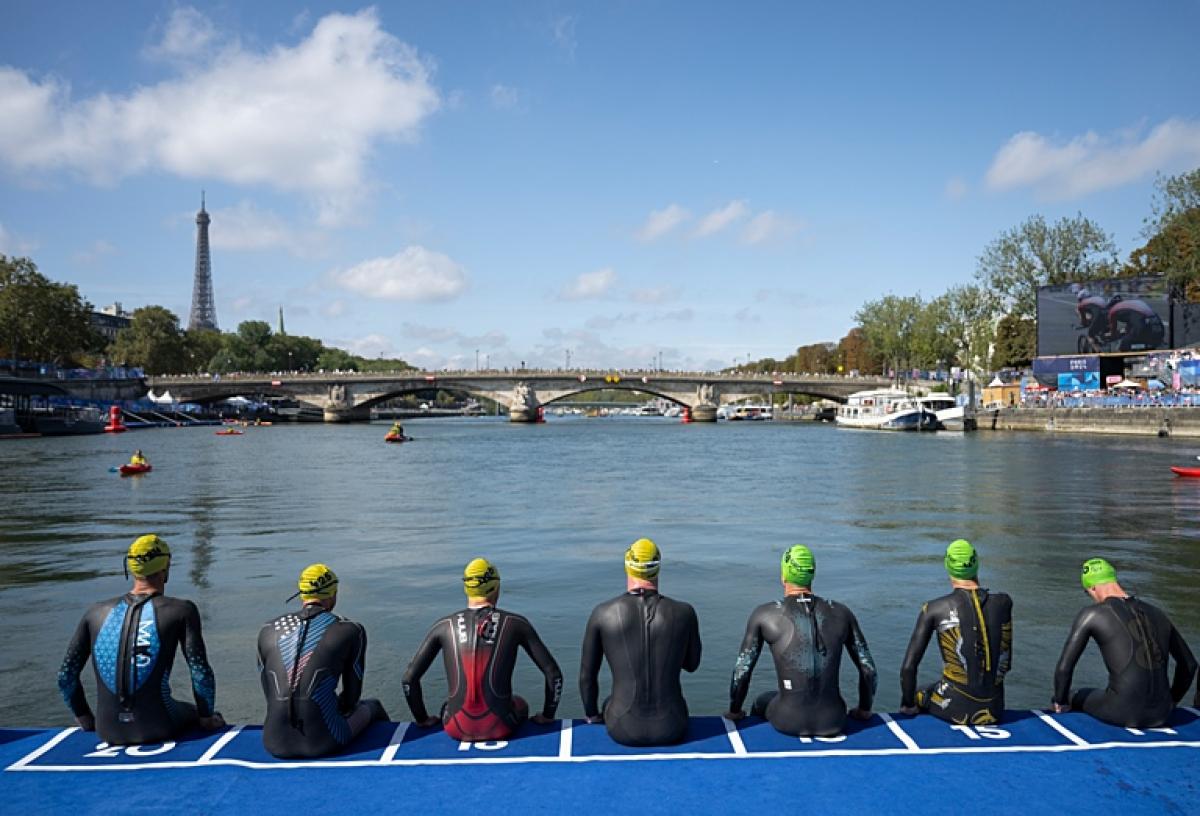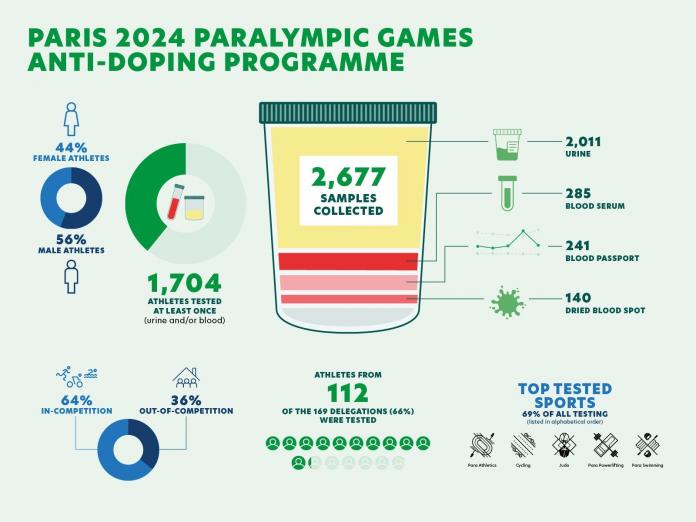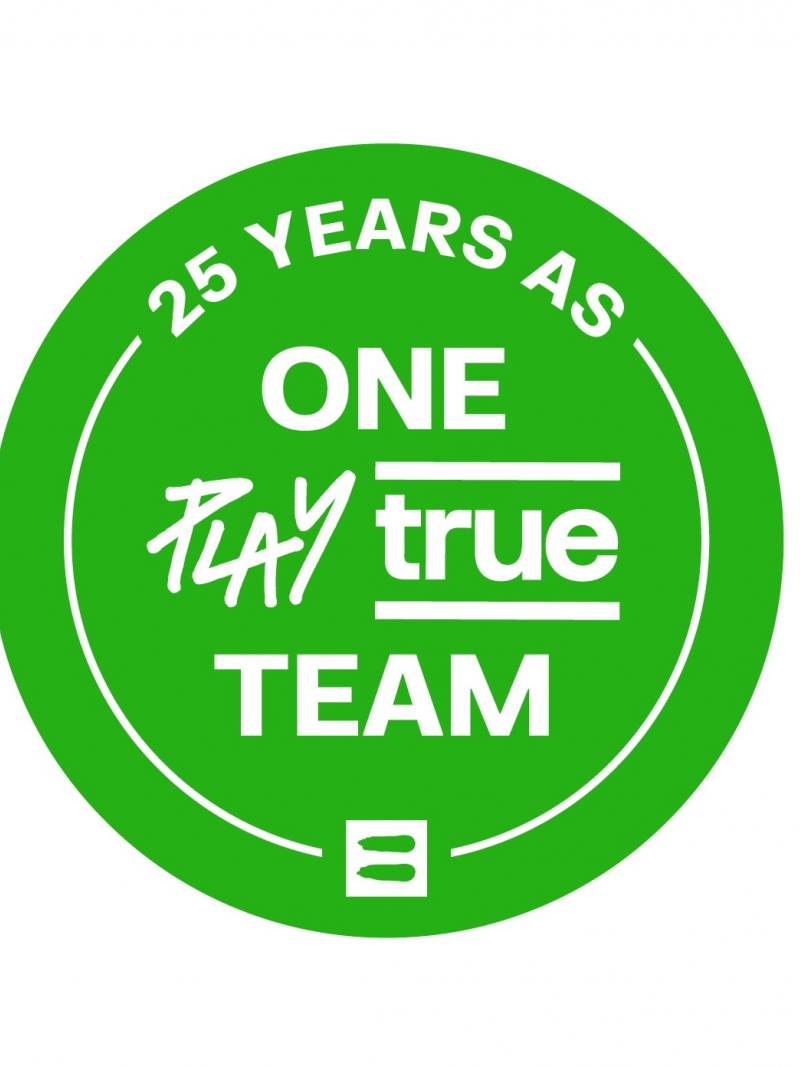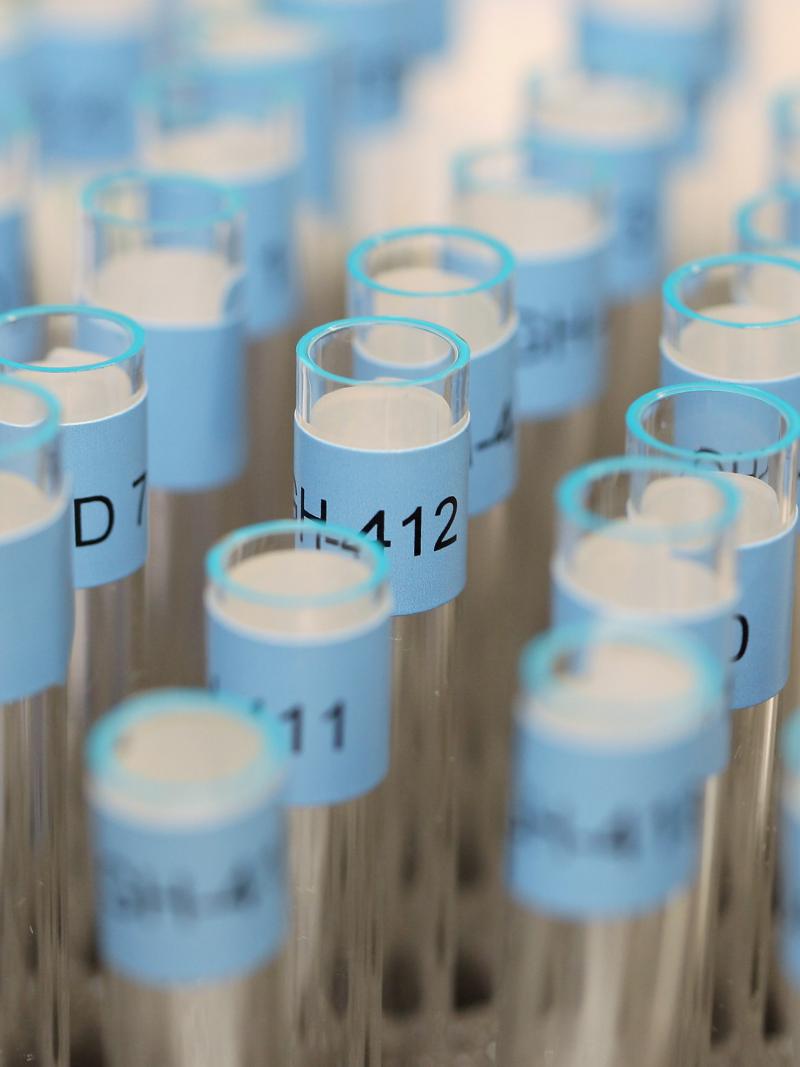IPC implements most comprehensive anti-doping programme for Paris 2024 Paralympics
During the Paris 2024 Paralympic Games period, the IPC collected 2,677 samples (urine and blood) from 1,988 doping control tests - 25 per cent more than Tokyo 2020 06 Dec 2024
The International Paralympic Committee (IPC) undertook its most comprehensive anti-doping programme to date before and during the Paris 2024 Paralympic Games.
During the Paris 2024 Paralympic Games period, the IPC collected 2,677 samples (urine and blood) from 1,988 doping control tests - 25 per cent more than Tokyo 2020. In total 1,704 athletes from 112 of the 169 competing delegations were tested at least once while in the French capital.
In the six months leading up to Paris 2024, the IPC re-analysed a number of doping control samples collected from athletes and placed in long-term storage following the Rio 2016 Paralympic Games.
The IPC also established a Paris 2024 Paralympic Games Anti-Doping Taskforce comprising a team of anti-doping experts representing anti-doping organisations from around the globe, including an athlete representative. The Taskforce assisted in assessing the doping risk across sports within the Paralympic programme and identifying athletes to recommend for testing ahead of Paris 2024. This work resulted in the IPC issuing testing recommendations to 89 National or Regional Anti-Doping Organisations and six International Federations.
This combined effort led to several athletes either being prevented from travelling to the Paralympic Games or being removed from the Games while in Paris after returning positive tests.
Seven adverse analytical findings reported by the Paris laboratory are currently being pursued as alleged anti-doping rule violations. Four of these came from out-of-competition testing and three from in-competition. The outcome of these cases will only be announced following the conclusion of the respective results management process.
Jude Ellis, the IPC’s Head of Anti-Doping, said: “The IPC’s anti-doping programme for Paris 2024 took a lot of work involving several stakeholders but ultimately was very rewarding. Our risk-based approach to testing helped ensure a more level playing field for athletes competing in Paris with the removal of several athletes from the Games for returning positive tests - before they had the chance to compete.
“The delivery of our anti-doping programme was a real team effort and would not have been possible without the support of our volunteer experts – including the pre-Games taskforce members and a team of experts who assisted us on the ground in Paris. Other essential volunteers included members of the Independent Anti-Doping Tribunal and the IPC’s Therapeutic Use Exemption Committee.
“At Games-time, the testing programme was delivered through a collaborative effort involving the Paris 2024 Organising Committee and French National Anti-Doping Organisation, supported by 130 Doping Control Officers and an army of volunteer chaperones.”
Anti-doping education
In the lead-up to, and during, the Paris 2024 Paralympic Games, the IPC implemented a range of initiatives with partners aimed at helping ensure athletes and their support personnel were aware of and educated about their anti-doping responsibilities.
Complementing the education athletes received from their respective National Anti-Doping Organisations, the IPC collaborated with the World Anti-Doping Agency (WADA) to launch “ADEL for Paris 2024 Paralympic Games”, an e-learning course targeting athletes, their guides and coaches.
Available in 12 languages, the eLearning course attracted registrations from more than 2,000 athletes and more than 1,000 coaches and support personnel. The course covered a range of Paris 2024 specific anti-doping topics, including the anti-doping rules that applied at the Games, how to apply to for Therapeutic Use Exemption and athletes’ rights and responsibilities during the testing process.
Prior to Paris, the IPC also partnered with the Global Drug Reference Online (GlobalDRO) platform to launch “Medication Check”, an online portal where athletes and support personnel can check the status of medications based on the WADA Prohibited List.
During the Paralympic Games, WADA also operated a “Play True” athlete engagement booth within the Paralympic Village to raise awareness of anti-doping amongst athletes and their support personnel.








